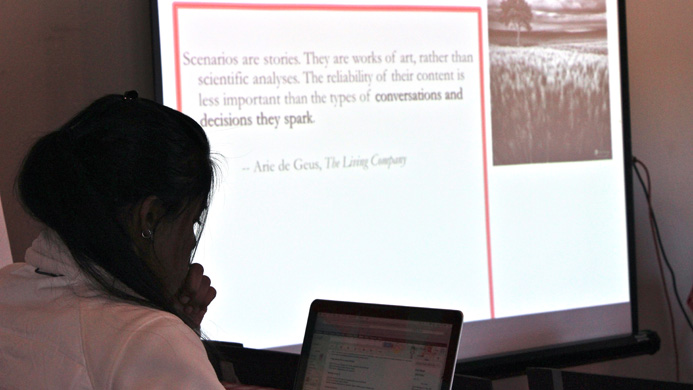RTTA 3/1: Futures of Foresight

Futures of Foresight has two major research thrusts: the more theoretical Plausibility Project and the more methodological Mediating Futures project.
The Plausibility Project
The Plausibility Project seeks to understand the significance of plausibility by questioning the ways individuals and communities know, explore, assess and shape futures across time, cultures and professional practices.
In 2012, the Plausibility Project prepared a special issue in the International Journal for Foresight and Innovation. The issue will explore future-oriented research and its relationship to policy formation. Following on results from a CNS-ASU plausibility workshop, authors in the special issue drill more specifically into the notion of plausibility as a paradigmatic shift and explore the implications of that shift for contemporary practices of foresight used to inform public policy.
Mediating Futures
This methodologically-focused research explores how diverse media represent technology futures. Mediating Futures combines field studies, case studies, experimental settings and site visits to catalogue and assess scenario activities used to improve decision-making and reflexive learning in a variety of settings. The team focuses on new and emerging media for future-oriented research, including scenario performance, 3-D interactive modeling, video and film, and physical models of prototype designs. RTTA 3/1 also develops a range of visual/digital and material/tactile “scenaric devices” to contribute to a variety of CNS activities.


